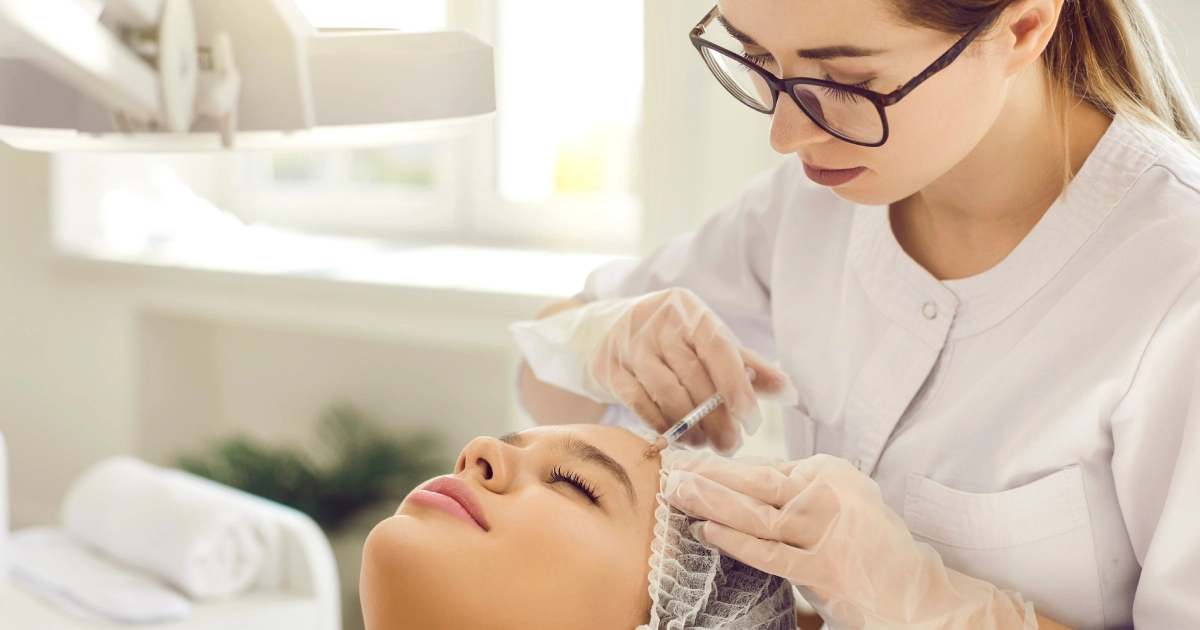Introduction
PCOS is a prevalent medical condition affecting women, which is characterized by various symptoms and associated health issues. It is essential for women to understand the symptoms, diagnostic procedures, and treatment options available for PCOS. Here’s a detailed overview of Polycystic Ovary Syndrome, focusing on the symptoms of polycystic ovaries syndrome and PCOS treatment strategies, with a particular emphasis on options available in Portsmouth, NH.
Understanding Polycystic Ovary Syndrome (PCOS)
Larger ovaries with little cysts surrounding the periphery are the outcome of a hormonal condition called polycystic ovarian syndrome. Different environmental and genetic factors are believed to be involved in PCOS, while the precise cause is yet unknown. The condition is characterized by a range of symptoms and can lead to various health issues, including infertility, metabolic syndrome, type 2 diabetes, and heart disease.
Symptoms of Polycystic Ovaries Syndrome
Symptoms of Polycystic Ovary Syndrome (PCOS) vary among individuals, but some of the most common include:
- Irregular Menstrual Cycles: This can manifest as periods that are infrequent, irregular, prolonged, or even absent. It’s one of the hallmark symptoms of PCOS.
- Excessive Androgen Levels: Excessive growth of hair on the face, chest, back, or buttocks is called hirsutism. High levels of androgen, commonly referred to as male hormones, can cause apparent physical manifestations such as severe acne, male-pattern baldness, or thinning or loss of hair on the scalp.
- Polycystic Ovaries: With ultrasound imaging, enlarged ovaries with several tiny cysts can be identified. While not all women with PCOS have visible cysts, the condition of the ovaries is a significant indicator.
- Weight Gain or Obesity: Many women with PCOS may experience difficulty managing their weight and are often overweight or obese. This symptom can exacerbate other symptoms of PCOS due to its impact on hormone levels.
- Insulin Resistance: Insulin resistance, or the inability of the body to properly use the insulin that is produced, is a common condition in women with PCOS. This results in elevated insulin levels. The chance of getting type 2 diabetes may rise as a result.
- Infertility: Because PCOS frequently results in ovulatory dysfunction, it is one of the main reasons for infertility in women. Ovulation irregularities or complete absence might make it difficult for women with PCOS to conceive.
- Fatigue: Many individuals with PCOS report experiencing fatigue or low energy levels.
- Mood Changes: PCOS can affect mental health and mood, contributing to anxiety, depression, and mood swings.
- Sleep Problems: Issues such as insomnia or disrupted sleep can occur, with conditions like sleep apnea being more common in women with PCOS.
- Headaches: Hormonal changes associated with PCOS can lead to headaches in some women.
Recognizing these symptoms early and consulting a healthcare provider can lead to a diagnosis and management plan to control the symptoms and reduce the risk of long-term health complications.
Diagnosis of Polycystic Ovary Syndrome
The Rotterdam criteria, which call for the presence of two out of the three symptoms listed below, are the main method used to diagnose Polycystic Ovary Syndrome (PCOS).
- Irregular Ovulation or Anovulation: This includes irregular menstrual cycles, prolonged menstrual cycles, or the absence of ovulation, which leads to irregular or absent menstruation.
- Clinical or Biochemical Signs of Hyperandrogenism: Clinical indicators include androgenic alopecia (hair loss or thinning), severe acne, and hirsutism (excessive hair growth in areas where males generally grow hair). Biochemical signs involve elevated levels of androgens (male hormones) in the blood, which can be detected through blood tests.
- Polycystic Ovaries Visible on Ultrasound: Polycystic ovaries are identified by the existence of 12 or more follicles, each measuring 2 to 9 mm in diameter, and/or an enlarged ovarian volume (>10 ml). However, it’s essential to note that polycystic ovaries alone do not confirm PCOS if the other criteria are not met.
Diagnostic Process
The process of diagnosing PCOS may include:
- Medical History: The patient’s medical history, including weight fluctuations, menstrual cycle patterns, and symptoms (such as acne and hair growth patterns) suggestive of elevated androgen levels, will be reviewed by a healthcare professional.
- Physical Examination: Signs of insulin resistance and other PCOS-related disorders, such as hyperandrogenism, can be found during a physical examination.
- Blood Tests: Blood tests are essential to measure hormone levels, including androgens like testosterone, insulin, glucose, and cholesterol, and to determine the risk of related illnesses like type 2 diabetes and cardiovascular disease.
- Ultrasound: A transvaginal ultrasound may be used to evaluate the ovaries’ appearance and check for the presence of cysts, as well as to assess the thickness of the uterine lining (endometrium).
It’s also essential to rule out other conditions that mimic PCOS, such as thyroid dysfunction, hyperprolactinemia, and non-classical congenital adrenal hyperplasia, among others. Healthcare providers use a comprehensive evaluation, including clinical assessments, blood tests, and imaging studies, to accurately diagnose PCOS, enabling the development of an effective management plan.
PCOS Treatment Options
PCOS is treated in a variety of ways, with an emphasis on symptom management, avoiding consequences, and addressing particular issues like infertility. Since PCOS can vary widely in how it affects individuals, treatment plans are often personalized. Here are the main treatment options for PCOS:
Lifestyle Changes
Lifestyle modifications are the cornerstone of managing PCOS, particularly for women who are overweight or obese. These modifications can lessen the chance of developing diabetes and heart disease, improve insulin resistance, and lessen symptoms.
- Diet: Incorporating a diverse mix of vegetables, fruits, lean proteins, and whole grains into a diet can help regulate your insulin levels and maintain a healthy weight. Reducing intake of processed foods, sugary beverages, and high-glycemic index foods is also beneficial.
- Exercise: Regular physical activity, including both aerobic and resistance training, can help lower blood sugar levels, improve weight loss, and reduce cardiovascular risk.
- Weight Management: Even a modest weight loss of 5-10% of body weight can significantly improve PCOS symptoms, including menstrual irregularities and fertility issues.
Medications
Several medications may be used to treat various aspects of PCOS:
- Hormonal Birth Control: Oral contraceptives, patches, or vaginal rings can help regulate menstrual cycles, reduce androgen levels, and improve hirsutism and acne.
- Metformin: This medication, primarily used to treat type 2 diabetes, can improve insulin resistance and may help with weight loss. It’s also used to induce ovulation in some women with PCOS.
- Clomiphene (Clomid) and Letrozole (Femara): These fertility medications can stimulate ovulation in women with PCOS who are trying to conceive.
- Spironolactone: The medication works by preventing the effects of androgens on the skin, which can help lessen acne and excessive hair development. But it’s not safe to use when pregnant.
- Hair Removal Treatments: To control excessive hair growth, there are procedures like electrolysis and laser hair removal, but they may be costly and need several sessions.
Treating Associated Conditions
Controlling PCOS-related issues such as obesity, type 2 diabetes, hypertension, and hypercholesterolemia is essential. Additional drugs and lifestyle modifications might be necessary for this.
Fertility Treatments
For women with PCOS who have difficulty becoming pregnant due to irregular ovulation, fertility treatments beyond clomiphene or letrozole may be necessary. This could include advanced reproductive technologies like in vitro fertilization (IVF).
Surgery
Ovarian drilling is a surgical option that may be considered if medication does not restore regular ovulation or if a woman has not responded to other treatments. However, this is less commonly used due to the success of other treatments.
PCOS treatment requires a comprehensive approach tailored to an individual’s symptoms, lifestyle, and fertility goals. Regular follow-ups with healthcare providers are essential for monitoring progress and adjusting treatment plans, while lifestyle changes, medication, fertility treatments, or surgery are crucial for managing PCOS.
Polycystic Ovary Syndrome (PCOS) Treatment in Portsmouth, NH
For residents of Portsmouth, NH, seeking treatment for PCOS, there are several reputable healthcare providers and clinics specializing in endocrinology and women’s health. These facilities offer a range of diagnostic services and personalized treatment plans for PCOS, ensuring that each patient receives the best possible care.
One of Portsmouth, New Hampshire’s top providers of PCOS treatment, LIIV Medical Aesthetics is distinguished by its all-encompassing and individualized approach to patient care. They are committed to utilizing the latest research and treatment options to effectively manage PCOS symptoms. With a dedicated team of healthcare professionals, LIIV Medical offers specialized, compassionate care for individuals facing the challenges of PCOS.
Conclusion
The complex disorder known as polycystic ovary syndrome, or PCOS, necessitates a multifaceted approach to diagnosis and treatment. LIIV Medical Aesthetics is proud to offer specialized treatments for individuals dealing with Polycystic Ovary Syndrome (PCOS), including the innovative approach of managing hirsutism through laser hair removal with the award-winning, FDA-cleared Nordlys laser system by Candela, providing compassionate care and personalized solutions to help manage and treat symptoms associated with this condition. Unlock a path to balanced health and renewed confidence with our innovative Polycystic Ovary Syndrome (PCOS) treatments, designed to harmonize your body and spirit.





